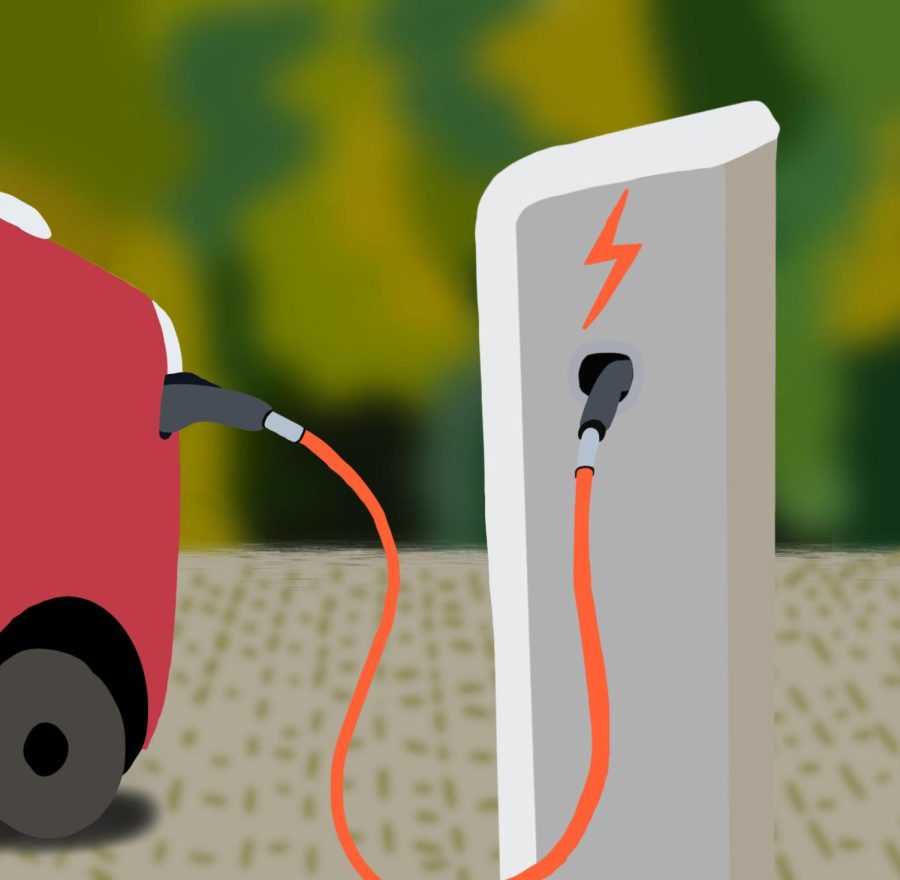Electric vehicles may be the future, but are not the present
September 6, 2022
Within the past decade, the popularity of electric vehicles (EVs) has skyrocketed — mostly due to the commercial success of Tesla, Inc. This booming market of “sustainable” vehicles is viewed as an international solution to automobile-based pollution: but are EVs as clean as we think?
The current mechanism for powering EVs relies mostly on at-home charging, which is only truly sustainable if the owner’s home operates on clean energy sources. Unfortunately, EVs are typically powered by the U.S electric grid that runs off of a combined total of 61% natural gas and coal driven power. EVs powered by the grid are somehow virtually carbon neutral with little to no emissions in comparison to traditional gas-powered vehicles. But how is this considered sustainable if EVs are still powered by non-renewable energy sources? It can’t be.
Further, EVs store power using high-capacity lithium-ion batteries that generate pollution in the mining process. The impact of this mining can cause multiple forms of pollution, respiratory illnesses, deplete farmland available for use and increase toxic waste. Not to mention, the advanced batteries are designed for extended life but will eventually wear out. While elements like lithium and cobalt are mined to make batteries for “environmentally-friendly” vehicles, they are leaving a devastating environmental impact in their wake.
In recent news, California has pledged to ban the sale and production of all traditional gasoline-powered automobiles by 2035. Additionally, President Biden’s Infrastructure Investment and Jobs Act promises to construct a national network of approximately 500,000 EV chargers across U.S. highways. The federal government is laying the groundwork for electric vehicles to be successful and viable nationwide but failing to address their shortcomings, such as being powered by non-renewable energy, environmental impact during production, high production cost and high market cost.
Though EVs are not currently as sustainable as they could be, they have the potential to alter the course of automobile-based pollution. The problem with EVs is not the vehicle itself, but the processes that power it. For EVs to truly become sustainable we must combat the current issues plaguing them. Introducing widespread forms of renewable energy and cleaner mining practices could solve the main concerns we currently have with EVs. While EVs may be the future in automotive technology they have a long way to go before they are truly environmentally sound.








